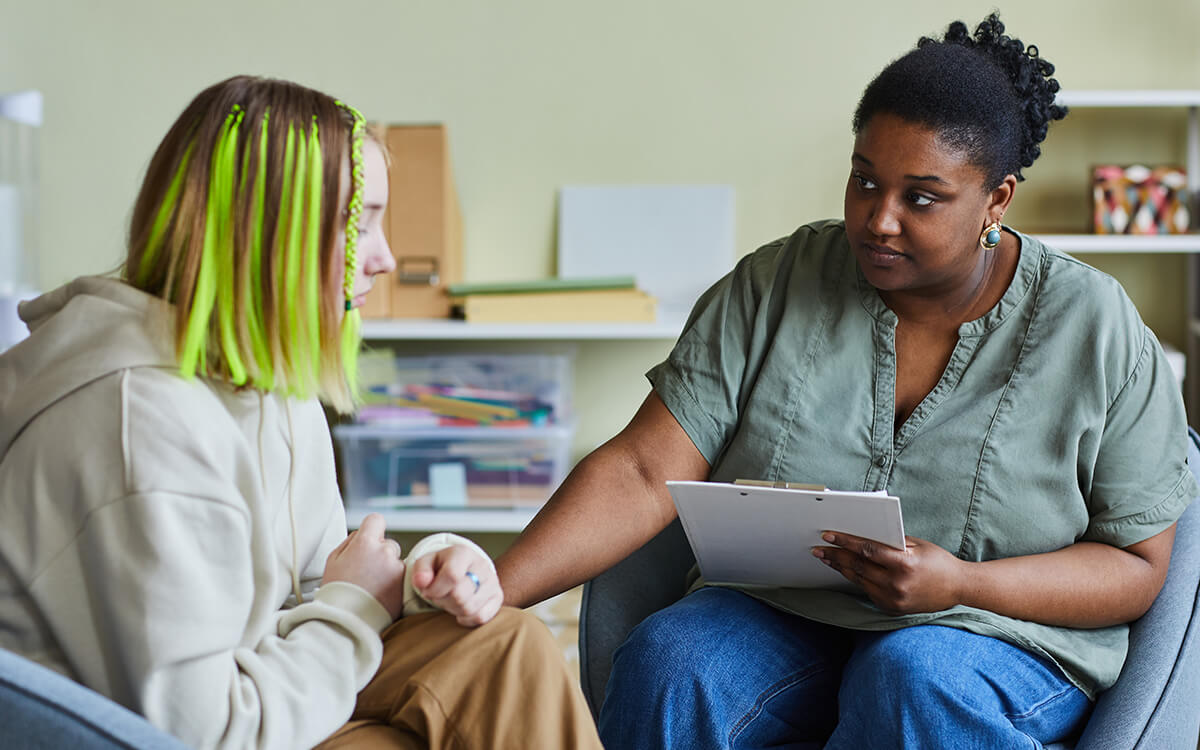As a child and adolescent psychiatrist, I’ve had countless conversations with parents who are worried, overwhelmed, and unsure about their child’s mental health treatment options. Many tell me, “I don’t want my child in a hospital, but once-a-week therapy isn’t enough.”
This is exactly where Partial Hospitalization Programs (PHP) and Intensive Outpatient Programs (IOP) come in—they offer structured, intensive support without requiring hospitalization.
But I get it—there are a lot of myths about these programs. Let’s clear those up and talk about what really happens in PHP and IOP.
Myth #1: “PHP and IOP are for kids with really severe issues.”
I often hear, “My child isn’t that sick,” or “A program like this sounds too intense for us.” The reality? PHP and IOP are designed for kids who need more than weekly therapy but don’t need full hospitalization.
At Plena Mind Center, we treat kids with anxiety, depression, OCD, ADHD/ODD, and mood disorders—kids who might be struggling to get out of bed, having school difficulties, or battling intrusive thoughts and big emotions. Our goal isn’t just to “manage” symptoms, but to better understand the root cause and then teach kids how to thrive.
What This Looks Like in Real Life:
- A 12-year-old with OCD who can’t stop checking her locker at school and is losing sleep over rituals.
- A 14-year-old with anxiety who refuses to go to school, and his parents are at their wits’ end.
- A 17-year-old with depression who used to be a great student but now isolates in their room all day.
- A 6-year-old with mood dysregulation and oppositional behavior who has intense, prolonged tantrums that lead to aggressive outbursts. Parents feel exhausted, teachers are struggling, and nothing seems to work.
These kids don’t need hospitalization—but they do need more than a weekly therapy session. That’s where PHP and IOP step in to provide structured, daily support while keeping them at home.
Myth #2: “It’s just a bunch of talking about feelings.”
I promise you—this is not just a venting session. PHP and IOP use evidence-based treatments that actively teach coping strategies, emotional regulation, and problem-solving skills.
At Plena Mind Center, we use:
- Cognitive Behavioral Therapy (CBT) – Helping kids challenge negative thoughts.
- Dialectical Behavior Therapy (DBT) – Teaching emotional regulation and distress tolerance.
- Acceptance and Commitment Therapy (ACT) – Helping kids accept difficult emotions and commit to meaningful action.
- Exposure & Response Prevention (ERP) – Helping kids face fears instead of avoiding them.
- SPACE (Supportive Parenting for Anxious Childhood Emotions) – Coaching parents on how to respond effectively to an anxious child.
- CAMS (Collaborative Assessment and Management of Suicidality) – A structured, evidence-based way to support kids struggling with suicidal thoughts.
I tell parents all the time: We’re not just treating symptoms. We’re giving kids the tools they need to navigate life.
Myth #3: “PHP and IOP will disrupt school and daily life.”
I get it—parents worry about their child falling behind in school or missing out on important activities.
But think about it this way:
If your child had a broken leg, would you tell them to just ‘push through’ and keep running? Of course not! You’d pause, get them the treatment they need, and then support their recovery. Mental health is no different.
PHP and IOP are temporary but transformative. A few weeks in an intensive program can prevent years of struggle down the road. And schools are usually supportive when they see that a structured treatment plan is in place.
At Plena Mind Center, we work closely with families and schools to create a plan that balances treatment with academics.
Myth #4: “If we start a program like this, my child will end up hospitalized.”
This is a big fear for many parents, but the truth is: PHP and IOP actually help prevent hospitalization.
These programs act as a safety net, catching kids before things escalate to a crisis. They also help kids transition home after a hospital stay, giving them structured support instead of throwing them back into daily life without guidance.
So, Is PHP or IOP Right for Your Child?
If you’re a parent feeling stuck, here’s a simple way to think about it:
- Is your child’s mental health impacting their ability to function at school, home, or socially?
- Has weekly therapy not been enough?
- Do you feel like things are getting worse, not better?
If you answered yes to any of these, a structured program like PHP or IOP might be exactly what your child needs.
At Plena Mind Center, we don’t put kids into generic “tracks.” We create individualized treatment plans that focus on the whole person—because no two kids are the same.
If you’re wondering whether this level of care is right for your child, reach out. You’re not alone, and help is available.
References
- American Psychiatric Association. (2023). Understanding Levels of Psychiatric Care. Retrieved from www.psychiatry.org
- Substance Abuse and Mental Health Services Administration (SAMHSA). (2022). Guidelines for Partial Hospitalization and Intensive Outpatient Programs. Retrieved from www.samhsa.gov
- National Alliance on Mental Illness (NAMI). (2023). Understanding Mental Health Treatment Options. Retrieved from www.nami.org
Final Thoughts
I know seeking treatment can feel scary. But getting help is a sign of strength, not weakness—for both kids and parents. PHP and IOP are about building resilience, developing skills, and restoring hope.
If you’re unsure whether this level of care is right for your child, reach out for a consultation. You don’t have to navigate this alone.
